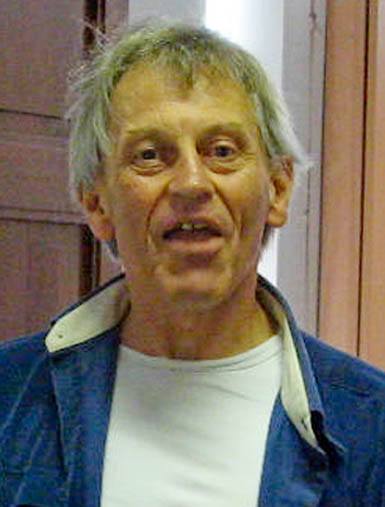A tireless champion of walkers’ access rights has died after a battle against cancer.
Rodney Legg, a former chair of the Open Spaces Society, died on Friday, aged 64.
His former colleague Kate Ashbrook, general secretary of the society, described Mr Legg as a rebel campaigner with a national reputation.
He chaired the OSS, Britain’s oldest national conservation body, for 20 years, stepping down in 2008 and also formed the Tyneham Action Group in 1967, pressing the Ministry of Defence into giving unprecedented public access to the Lulworth military live-firing range.
Mr Legg served on the National Trust council for 20 years, and persuaded the trust to open Max Gate, Thomas Hardy’s home at Dorchester, to the public in 1994.
Ms Ashbrook, who worked with Rodney for 30 years, said: “Rodney was an unusual but extremely effective campaigner. You could never predict what he would say or do, but people always listened to him.
“Although he was a huge irritation to the National Trust for many years, challenging its stuffy old ways, he made a difference, persuading it to open up secret properties and to become much more welcoming. By the time he stood down from the council the old hostility had changed to a respect bordering on affection.
Mr Legg was born in Bournemouth on 18 April 1947 and started his career as a journalist on the Basildon Standard in Essex in 1964.
In 1968 he founded the Dorset County Magazine – now Dorset Life – as an outlet for his then unfashionable views on the environment, and in 1971 founded his own Dorset Publishing Company.
Rodney Legg wrote 125 books, mostly about Dorset and its history, which he called ‘six feet of books’ – the shelf-space they occupy.
He was warden for 24 years of Steep Holm island in the Bristol Channel, which was purchased in 1976 in memory of his friend, the writer and broadcaster Kenneth Allsop. Between1980 and 1982 he collaborated with novelist John Fowles in transcribing and publishing John Aubrey’s 300-year-old Monumenta Britannica. He collected and studied Celtic heads.
While chair of the Open Spaces Society, he won public access to 640 acres (260 ha) of land in Dorset and Somerset, under the Countryside and Rights of Way Act, and campaigned to save many commons, greens and paths.
Ms Ashbrook said he was sharply critical of the secrecy and lack of democracy which pervaded the National Trust, arguing that the trust should publicise all its land on Ordnance Survey maps, open up illegally blocked paths on its land and allow public access wherever possible, as well as purchasing land, rather than stately homes, for public enjoyment.
“He rarely wore a suit or tie, and arrived at formal meetings as though he was fresh from a Dorset exploration, always with an impish grin. He was impossible to ignore,” Ms Ashbrook added.
Mr Legg will be buried at Higher Ground Meadow, Corscombe in Dorset.
